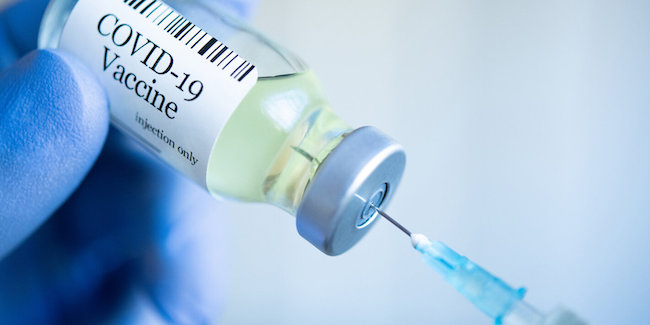So who has travel plans this summer? You? And you, too? I’m not surprised. Ski Divas aren’t the sort to sit around and veg on the couch. We want to take trips and have adventures, even if they don’t involve skiing. And we don’t want anything to get in the way of our fun.
Nonetheless, sometimes our bodies remind us who’s really in charge. I remember being on a plane from Steamboat with a guy hacking and coughing in the row behind me. Sure enough, a couple days later I came down with a miserable cold.
This isn’t uncommon. The Wall Street Journal cited a study that found you have a 20% increased risk of catching a cold on a plane. Another study in the Journal of Environmental Health Research found that colds may be more than 100 times more likely to be transmitted on a plane than in normal life on the ground.
But it’s not just colds that are the problem. I’m sure you’ve all heard about those awful outbreaks of GI infections on cruise ships, where hundreds of passengers are stricken with vomiting and diarrhea. Not a vacation highlight, I’m sure.
You don’t have to trust to luck to stay healthy. There are a few things you can do to minimize your chances of falling ill:
Boost your immune system. The best way to stay healthy starts way before your trip begins, with a good immune system. According to Consumer Reports, there are more than 1,000 products on the market that claim to fend off disease. But honestly, the best way to improve your immunity is very simple: maintain a healthy lifestyle. Get enough sleep. Eat healthy. Take vitamins. Exercise. Don’t smoke. Reduce stress. Maintain a healthy weight. Control your blood pressure. And if you drink alcohol, drink it in moderation. Good advice, even if you’re just staying home.
Wash your hands. A lot. This seems so basic that it shouldn’t even need to be said. But yet it does. I don’t want to sound like a germaphobe, but according to the Mayo Clinic, cold and flu germ-laden droplets may remain infectious for several hours, depending on where they land. And some viruses can live on surfaces for as long as seven days. In any event, why take chances; just wash your hands, particularly before you eat. According to the CDC, proper hand washing requires at least 20 minutes of scrubbing. And according to a recent study published in Time magazine, it makes no difference whether the water is hot or cold.
Drink lots of water. Staying hydrated helps maintain the mucus in your throat and nasal cavity, which provides a good barrier against germs. That said, be careful of the water you do drink. No doubt you’ve heard about people getting sick from drinking tap water while overseas. This isn’t necessarily because the water is contaminated. It could just be that it has local bacteria that your body isn’t used to. So if you’re traveling abroad, you might want to drink bottled water or invest in a water filter.
Carry wet wipes. Hand sanitizer, too. I do. I use them to wipe down my seat tray and arm rests on the plane, as well as the TV remote in a hotel room, the faucet, and pretty much anything else I can think of.
Eat healthy. Sure, vacation is a time to indulge a little and try something new. This is fine. But remember, all things in moderation. And consider the source. If no one is eating at a particular restaurant, there may be a reason. When in doubt, eat food that’s either boiled or peeled. Germs will be killed off pretty much universally by boiling, and can’t get into food that has a peelable skin. Some people recommend taking probiotics for a few weeks before vacation, the idea being that populating your gut with healthy bacteria or yeasts can help fight disease-causing organisms.
Make sure you’re up on your vaccines. Depending on where you go, you may need special shots. Visit the CDC Travel Health site for details on the vaccines you’ll need for various parts of the world, as well as other important information to stay healthy while you travel. It also doesn’t hurt to make sure your tetanus shot is up to date.
Don’t forget your meds. Be sure to bring along any prescribed medications you need. And it wouldn’t hurt to throw in some Tylenol, Advil, and Immodium, too. It’s not a bad idea to bring along some motion sickness pills, either, if you’re planning on a cruise.
Use insect repellent. Mosquitos can spread all sorts of diseases (according to Wikipedia, these include malaria, dengue, West Nile virus, chikungunya, yellow fever, filariasis, Japanese encephalitis, Saint Louis encephalitis, Western equine encephalitis, Eastern equine encephalitis, Venezuelan equine encephalitis, La Crosse encephalitis and Zika fever. Phew!). Then, of course, there are tick-transmitted diseases, like Lyme Disease and Rocky Mountain Spotted Fever. These little bugs can cause a lot of trouble. So bring along some insect repellent and be sure to use it.
If you’re going abroad, make sure you have medical coverage. If not, buy some. But before you do, check with your medical insurer to see if you’re covered by your existing health plan. Even if your health plan does cover you internationally, you may want to consider buying a special medical travel policy.
Going up? Acclimate. If you’re taking a trip that involves any significant increase in altitude, give yourself some time to adjust at lower elevations first. It doesn’t matter if this is your first or tenth trip over 8,000 feet; altitude sickness can strike at any time. The human body actually takes weeks to acclimate to high elevations, but since you probably don’t have that much vacation time, give yourself between 48 and 72 hours to adapt. It also helps to avoid tobacco and alcohol and drink lots and lots of water. If you start to show symptoms of moderate altitude illness, don’t go higher until your symptoms diminish.
Stay safe, stay healthy, and have fun, Ski Divas!



